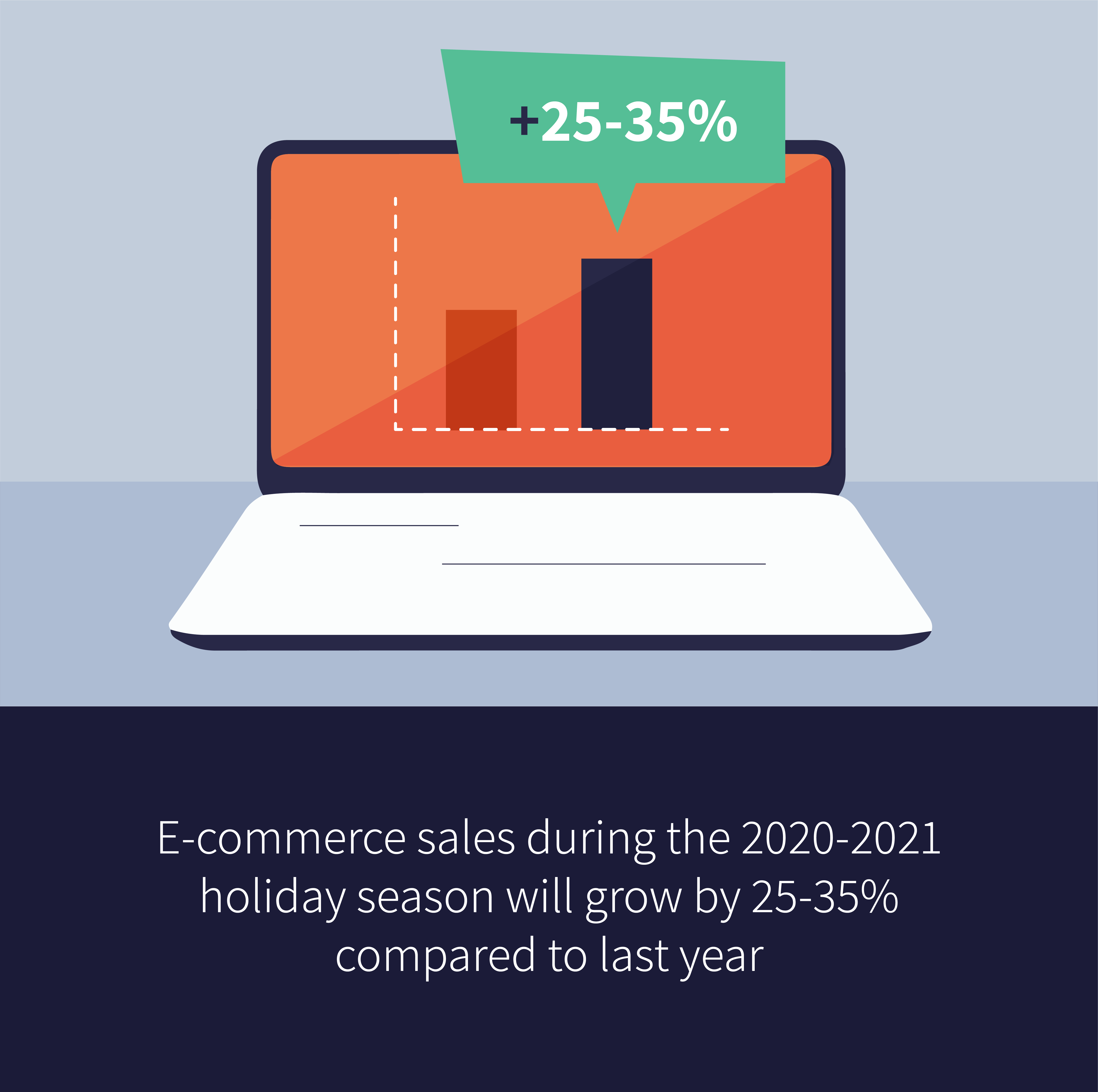How to Avoid the Latest Cyber-Shopping Scams
Summary: Experts predict that this holiday shopping season will be one long “Cyber Monday,” as shoppers and sales move online. But hidden among the doorbuster deals will be identity-and wallet-buster scams, courtesy of criminals taking advantage of the online shopping frenzy. Find out how to tell real sales from swindles.
Cyber-Monday Brings Deals and Real Steals

With COVID keeping people at home, holiday shoppers won’t be lining up outside stores this year for Black Friday deals. Instead, shoppers and holiday discounts have moved online, and the consulting firm Deloitte forecasts that e-commerce sales during the 2020-2021 holiday season will grow by 25 to 35 percent compared to last year. But just because you don’t have look over your shoulder to secure your merchandise, you still need to be on the lookout for scammers looking to profit from unwary online shoppers.
There are some new twists to this year’s scams. So, let’s look at how to power shop this cyber-season without getting taken for a ride (and we don’t mean in Santa’s sleigh).
Scammer Holiday Hits
As usual, this year’s holiday scams are designed to steal your personal information, your money, and/or deliver malware to your computer or mobile device. But what makes this year worse (2020, right?) is the sheer volume. According to a recent study, 62 percent of consumers shop more online now than before COVID-19, and criminals are racing to take advantage of all the new potential victims.
Here are some of the scams to watch out for this year:
- Phishing emails: There will be more sales emails than ever this year as retailers focus marketing efforts toward online shoppers, and phishers are betting their fraudulent emails won’t be noticed in the online rush. A ThreatPost report says some phishers are using sophisticated new tactics to steal credentials and financial data from users’ Office 365 accounts.
- Fake websites: Scammers are using emails and pop-up ads to lure consumers to websites that mimic legitimate retailer sites. A recent Forbes article noted that Amazon is now one of the most imitated brands according to phishing reports. Scammers use these fake websites to collect personal and payment information. And, of course, they don’t ship the products that the consumer supposedly bought.
- Refund scams: In this scam, an alleged customer service representative contacts a shopper saying that an item is out of stock and offering a refund that is more than the consumer paid. They just need the buyer’s account details so that they can process the refund. You guessed it: those details will be used for identity theft. This scam is already popping up this year, as different countries begin their holiday shopping seasons.
These are just the first of this year’s holiday scams. Bad little boys and girls come up with endless ways to steal your money and personal information.
So, here are some ways to protect yourself:
- Read email offers and pop-up ads carefully. Watch for spelling errors or anything that seems off, and mouse over links before clicking on anything. (The destination will pop-up or it will show in the lower-left corner of your browser.) Check the destination to make sure it’s a real retailer, and watch for misspellings that could signal a fraud, e.g., “amazan” vs. “amazon.”
- Shop only at secure websites: When you visit websites, look for “https” and the little lock symbol to the left of it. That tells you the site is secure and probably legitimate. If you have good security software on your device, it will warn you if you’re about to visit a site that’s dangerous or insecure.
- Click with care: Look closely before clicking on shipping notices, refund emails, etc. to make sure they are from a real retailer or shipping company. And never ever ever click on a notice that doesn’t include your name, the seller’s name, and a description of a product that you actually ordered. Another hint: If you bought from a retailer, they already have the financial information to issue you a refund. They won’t contact you asking for it.
- Track deliveries: If you buy a product and it doesn’t show up within the promised shipping window, the seller may have been fake. Most payment systems have a limited window for you to cancel a purchase, so if your purchase doesn’t arrive when expected, cancel it. Some companies such as PayPal and Amazon, also have “purchase protection” or “buyer dispute” programs that allow you to dispute payments beyond the usual 60 or 90 days.
Pandemic worries aside, there’s a lot to be said for online shopping: no lines, no mall crowds, no traffic jams in the parking lot. No wonder Nerd Wallet predicts that almost 70 percent of us will do all our shopping online this year, and for some of us, this may become the new holiday norm. Just don’t let the frenzy for great online deals get in the way of your common sense. Remember, if the deal is too good to be true, it’s probably a steal...from you!
About IDX
We're your proven partner in digital privacy protection with our evolving suite of privacy and identity products.




